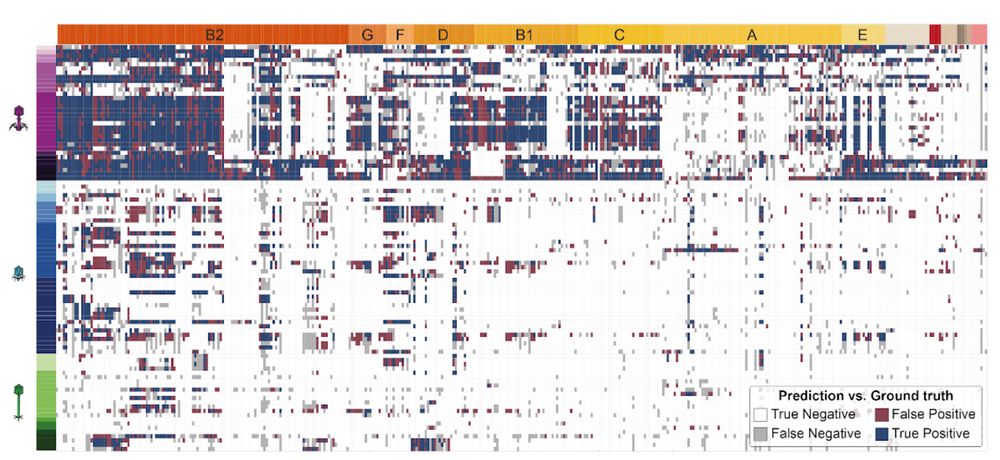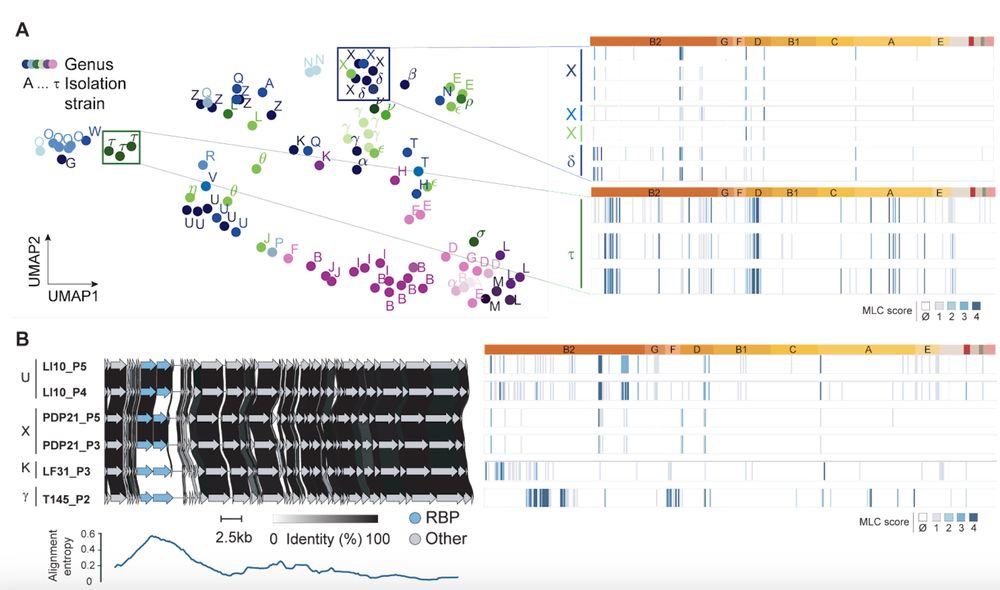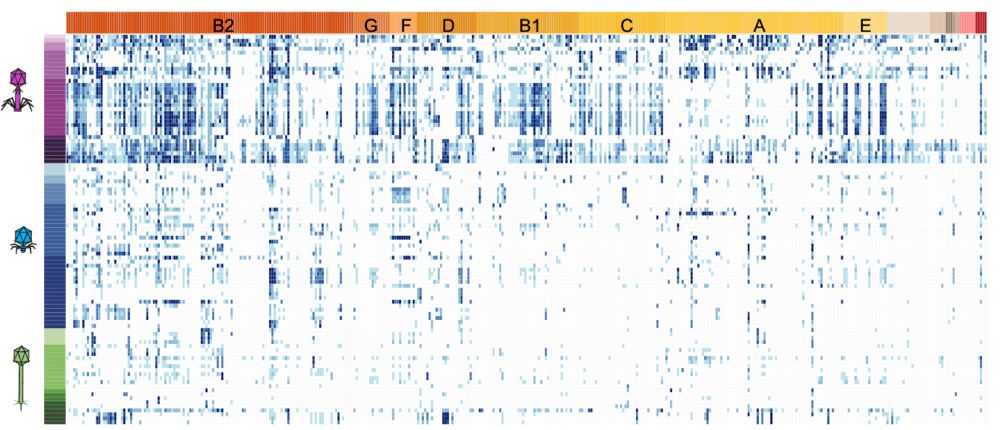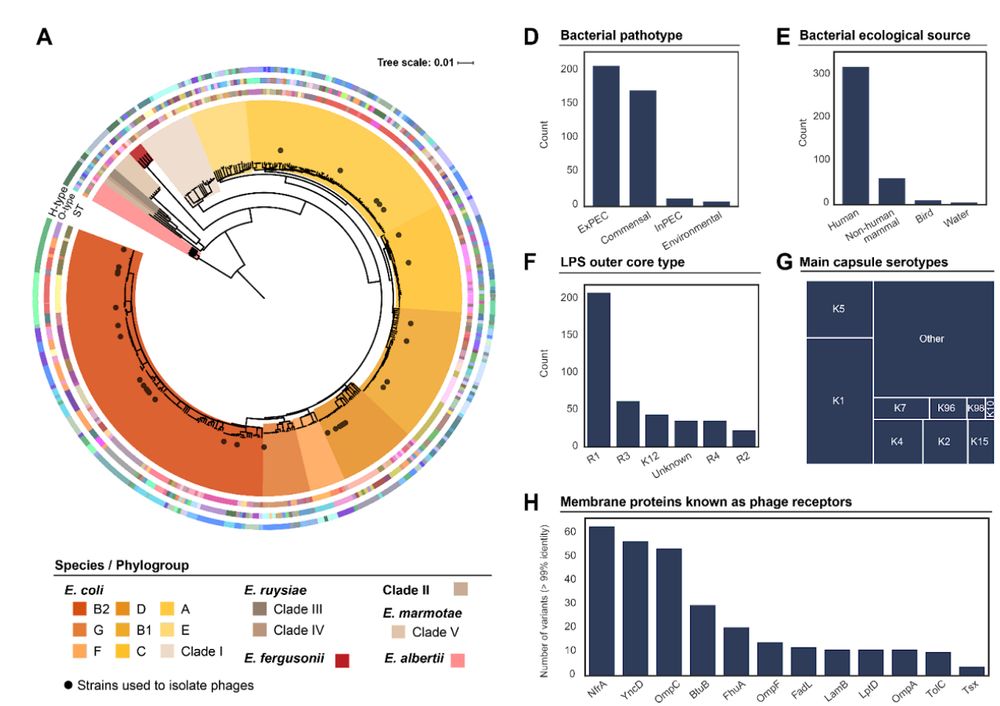Focusing on bacterial immunity 🦠🧬🧫 //
We ♥️ sharing our science with everyone // PI Aude Bernheim
Hugo Vaysset, and @ftesson.bsky.social and to all the great team.
www.biorxiv.org/content/10.1...
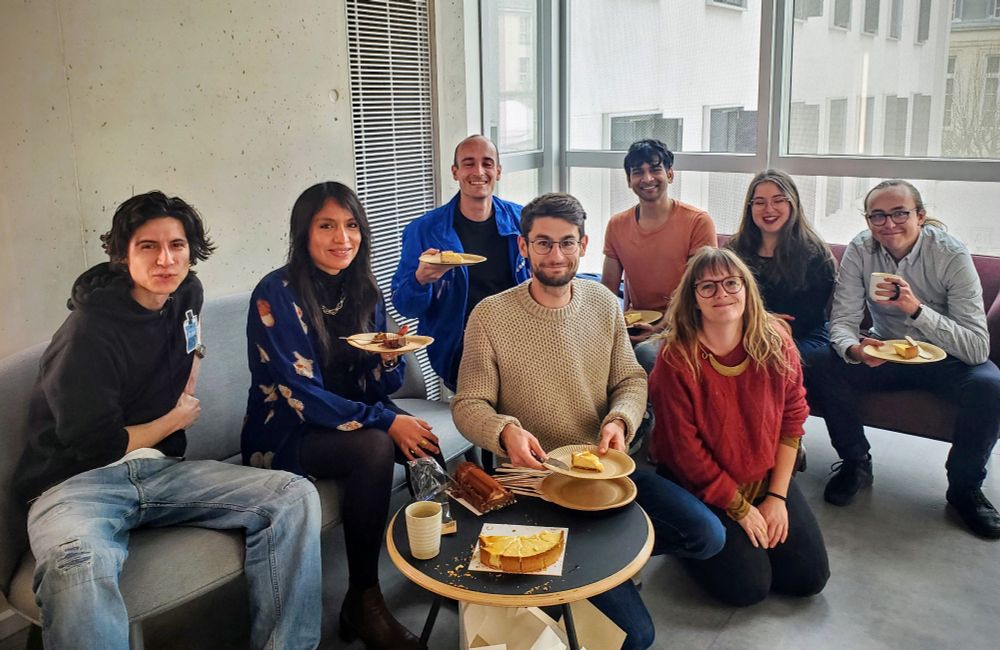
Hugo Vaysset, and @ftesson.bsky.social and to all the great team.
www.biorxiv.org/content/10.1...
There is much more work to be done to improve these predictions, but our study demonstrates feasibility. We anticipate similar approaches could be applied to many bacterial species.
There is much more work to be done to improve these predictions, but our study demonstrates feasibility. We anticipate similar approaches could be applied to many bacterial species.
We hope that making available to the community 2 new collections & the accompanying interaction dataset will provide a starting point for mechanistic exploration of these interactions.
We hope that making available to the community 2 new collections & the accompanying interaction dataset will provide a starting point for mechanistic exploration of these interactions.
We show higher efficiency of tailored cocktails on a collection of 100 pathogenic E. coli isolates.
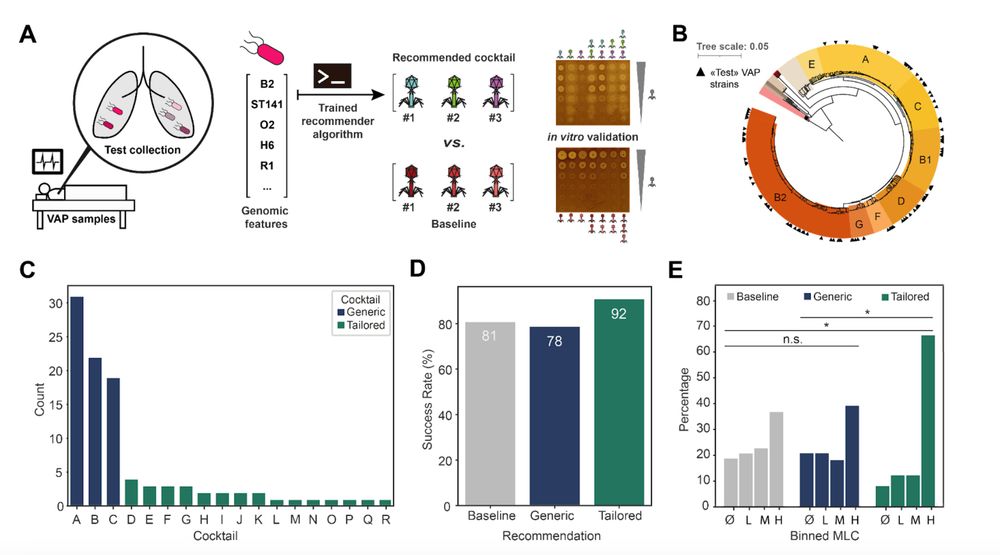
We show higher efficiency of tailored cocktails on a collection of 100 pathogenic E. coli isolates.
